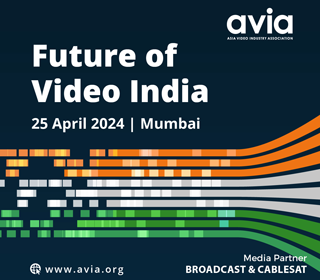Trends
Metaverse spending could reach £512bn by 2030
A new report from Bloomberg Intelligence (BI) shows that while there are short-term challenges for Metaverse adoption, the entry of big tech players in the market will drive long-term spending.
A new report from Bloomberg Intelligence (BI) has found that a slowdown in consumer spending and a lack of standards may remain a drag on virtual and augmented reality adoption… in the short-term.
However, Apple’s likely entry into the market with a new headset could be a catalyst for faster growth in the metaverse, which may reach £512 billion by 2030. Advances will likely be driven by virtual 3D for shopping, events, social media and other consumer apps.
Mandeep Singh, BI Senior Industry Analyst (Technology), commented: “Metaverse offerings that leverage virtual reality (VR) and augmented reality (AR) devices for immersive 3D experiences beyond gaming — in areas such as e-commerce, concerts and education — have the potential to drive $615 billion (£512bn) in spending by 2030, our analysis suggests.
“VR/AR hardware and token- and ad-based revenue will be critical on the consumer side, while public-cloud infrastructure and VR/AR enterprise software and design will be key to laying the foundation for experiences.
“Apple’s entry into this space with a new mixed-reality headset, which could take place in 1H, remains crucial to mainstream adoption. Industry revenue from the technology’s use for entertainment may be delayed until the VR/AR user base is at least 50-100 million.”
AR/VR Unit Growth Pressured in the Near Term
Slowing unit growth for AR/VR hardware may remain a challenge for the metaverse in the near term amid a pullback in consumer spending. At the current price point, VR-headset adoption could stay muted with limitations in application as well as functionality issues with using these devices for multiple hours.
Innovation will be key to gaining market share, and IDC projects AR/VR spending will climb to over $40 billion by 2030, up from around $4.3 billion in 2022. Companies like Meta Platforms are likely to pare back their operating and capital spending amid pressure to boost profitability, which could be a drag on the metaverse’s pace of development.
Brand Partnerships, Events Pave Monetisation Path
Metaverse offerings could continue expanding beyond gaming with new partnerships, creating new opportunities for shopping, concerts and other virtual events. Platforms like Roblox and Decentraland already have deals with Gucci, Nike and Coca-Cola, among others, creating unique experiences for users to see the brand through a different lens. The sale of high-end luxury items in the metaverse demonstrates the potential for monetisation.
Live events also show promise, with platforms like Fortnite hosting concerts for artists such as Ariana Grande, Travis Scott and others. These performances attract millions of users with the lure of experiences that defy limitations of the physical world.
Generative AI Can Enhance User Experience
Generative AI and GPT could revolutionise metaverse engagement by offering users convincingly human interactions in a virtual landscape. GPT’s ability to leverage large language models is an enhancement that can provide distinct responses to text, voice and gestures. (https://expo.aspe.org/)
Platforms like Meta’s Horizon World or Roblox may shift to GPT to augment and expand into new areas like education. GPT could also improve how users work virtually. Consumer applications have seen better adoption early vs commercial. GPT might boost enterprise use by improving the way employees work. Digit








